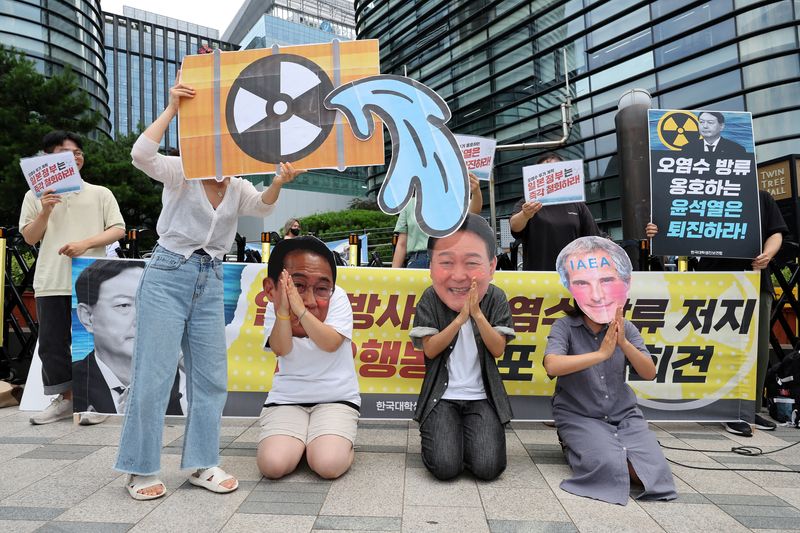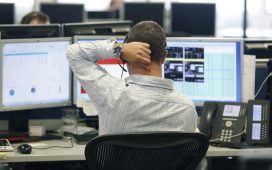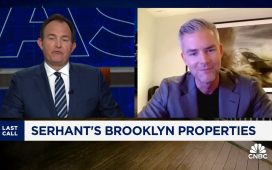
© Reuters. Students wearing masks featuring Japanese Prime Minister Fumio Kishida, South Korean President Yoon Suk Yeol and International Atomic Energy Agency (IAEA) chief Rafael Grossi attend a protest against Japan’s plan to discharge treated radioactive water fro
2/5
By Hyunsu Yim
SEOUL (Reuters) -The head of the United Nations’ nuclear watchdog was met with protests while visiting South Korea on Saturday in a bid to calm fears over Japan’s plan to discharge treated radioactive water from its tsunami-hit Fukushima plant.
Rafael Grossi, director general of the International Atomic Energy Agency (IAEA), arrived in Seoul on Friday to meet the foreign minister and a top nuclear safety official during his three-day visit after wrapping up a trip to Japan.
Earlier in the week, the IAEA said that a two-year review showed Japan’s plans for the water release would have a negligible impact on the environment.
His arrival at Seoul’s Gimpo Airport was met with protests, local media reported, despite the South Korean government’s announcement that it respected the IAEA’s report and that its own analysis had found the release will not have “any meaningful impact” on its waters.
Hundreds of people including members of the Korean Confederation of Trade Unions took to the streets on Saturday to protest the discharge plan.
“It makes little sense to argue that the release is okay because it does not harm humans. Animals also live in the ocean,” said university student Kim Han-bi.
No expert behind the IAEA’s Fukushima report disagreed with the content, Grossi told news agency Yonhap on Saturday, hinting at his comment during an interview with Reuters one day earlier that one or two team members may have expressed concerns.
On Sunday, Grossi is set to meet with members of the opposition Democratic Party of Korea which has been critical of the Japanese plan.
The administration of President Yoo Suk Yeol has walked a fine line in its stance to Japan’s discharge proposal, as it tries to improve ties with Tokyo. But the plan has stirred anger and concern among South Koreans, prompting some shoppers to buy up sea salt.
Despite South Korea’s assent for the plan, a ban on food and seafood products from the Fukushima region would remain in place.
Opposition Democratic Party leader Lee Jae-myung has also said the government should try to halt the plan and take the case to the International Tribunal for the Law of the Sea.











